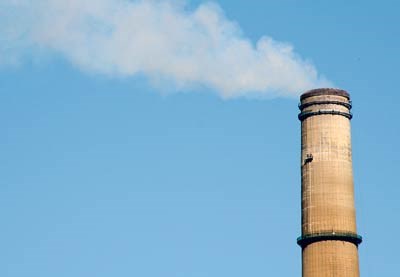The Ministry of the Environment is looking for public input, now that it has completed its study of a request by Vale to have a longer period of time to meet more stringent standards for nickel released into the air.
Vale wants until 2015 to take actions to meet ministry air nickel standards at its Copper Cliff Smelter.
Normally, companies are only allowed to have an altered standard for five years, but such an alteration can be granted for up to 10 years in extenuating circumstances.
Vale has argued that it needs more time to construct and commission its $1.5 to $2 billion atmospheric emissions reduction project, and to conduct follow-up testing.
Ministry officials have posted a draft action plan for Vale on the province’s online environmental registry website. To view the draft action plan, go to www.ebr.gov.on.ca, and type “Vale” into the search bar.
“It is giving them the altered air standard that they have requested,” Scott Grant, an air pollution engineering specialist with the ministry, said.
“They had requested that it expire at the end of 2017, and we’ve put that in the draft. We are looking for public input on the whole document, including the expiry date.”
Vale wants until 2017 to do further testing to make sure the measures it takes to meet these new standards are successful, and to plan for further air nickel reductions.
Vale spokesperson Angie Robson previously told Northern Life the new standards mandated by the ministry are based on modelled results, or the worst-case operating scenarios from all of the company’s emission sources.
Using this modelled results system, Vale has asked to work towards a 2.6 micrograms per cubic metre air nickel emissions standard by 2015, as opposed to the current ministry standard of two micrograms per cubic metre.
“If you look at our nickel, SO2 and metals emissions, they’ve continued to drop significantly since the 1980s,” Robson said.
“If you look at just nickel emissions, they’ve dropped by 40 per cent since 2005. We’re continuing to work on that track record. With our (atmospheric emissions reduction project), we’re going to see another significant drop by the end of 2015.”
Comments can be submitted by mail or online before March 12. Comments can also be mailed to the following address: Scott Grant, Engineer, Air Pollution Control, Ministry of the Environment, Environmental Sciences and Standards Division, Standards Development Branch, Technology Standards Section, 40 St. Clair Avenue West, Floor 6th, Toronto, Ontario, M4V 1M2.
Online comments can be submitted by going to www.ebr.gov.on.ca, and typing “Vale” into the search bar.
Citizens are also invited to attend a public meeting about the topic, which is being held today (Jan. 27) from 7-9:30 p.m. at Tom Davies Square in boardroom C-11.
Ministry officials will give a presentation about Vale’s proposal. Although those attending the meeting are free to comment there, Grant said he prefers they also provide a written version of their comments.
Grant said he expects that, once the public input period is over, the ministry will make a decision one or two months later.
In deciding whether or not to let Vale have more time to meet the air nickel standard, the ministry has to look at whether the company is putting forward its “best efforts,” Grant said.
The ministry looked at other companies worldwide to see what they do to reduce air nickel emissions, and “concluded that (Vale’s) action plan, with conditions, does represent best efforts,” he said.
New regulations for air pollution were brought into effect in the province in 2005, and industry was supposed to meet them by 2010.
However, in 2008, Vale submitted a request to the ministry to have more time to come in line with the regulations. The ministry allows companies to go through an “alteration of standards” process if they say they’re unable to meet more stringent pollution guidelines in time.
Join Sudbury.com+
- Messages
- Post a Listing
- Your Listings
- Your Profile
- Your Subscriptions
- Your Likes
- Your Business
- Support Local News
- Payment History
Sudbury.com+ members
Already a +member?
Not a +member?
Sign up for a Sudbury.com+ account for instant access to upcoming contests, local offers, auctions and so much more.
